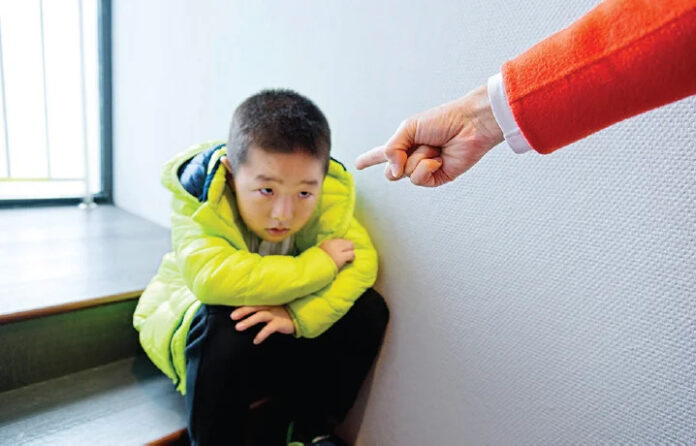Those children who are more prone to be bullied tend to have a low self esteem or feeling of insecurity.
Bullying is something most children encounter in one form or another. Children struggle with being called names, being picked upon, being excluded or not knowing how to make friends. You can’t follow your children around all day, every day, for the rest of their life. So how can you protect them from bullying?
Bullying behaviours
Bullying can take many forms: physical, emotional, verbal or a combination of these. It often involves victimization and abuse. Bullies are very often children who have been bullied or abused themselves. They bully others to feel competent, successful, to control someone else, to get some relief from their own feelings of powerlessness.
Who are the victims?
Not all children are likely to be victimized. Those children who are more prone to be picked upon tend to have a low self-esteem or feeling of insecurity. They may suffer from lack of social skills or may be excessively emotional.
If your child is being bullied
If you learn your child is being bullied, you may immediately want to protect your child and confront the aggressor. You may feel helpless yourself. None of these responses are helpful.
Teach your children they are not helpless
* If they are bullied, they should tell an adult, and keep telling adults until something is done.
* Reinforce a positive, self-opinion. l Encourage them to mix with friends who are supportive, not hurtful.
* Get the school involved. Share information with teachers or the school counsellor.
Teach your children ways to diffuse conflict
* A joke or humorous comment can diffuse some tense situations.
* Teach your child to disregard hurtful comments that are untrue. This will allow them to not respond to hurtful comments.
Create separation
* If your child’s physical safety is in danger, or he’s being psychologically or socially harmed, remove him from the situation.
* That might even mean transferring him to another school in extreme cases.
Your child’s safety is your first concern.
Make sure your children are supervised
* Insist on knowing where your children are at all times and who their friends are.
* Never leave young children home alone, even for a short time.
If your child is the bully!
What every parent doesn’t want to hear: ‘Your’ child is a bully. Your first response will probably be defensive. Make yourself really listen. Remember that this discussion is ultimately about the well-being of your child, regardless of how it’s being framed.
Even if your child is behaving aggressively or acting like a bully, remember that this behaviour is probably coming from your child’s feelings of vulnerability. You need to look for what is going on in your child’s interactions with others and what is going on internally, causing your child to behave that way.
Preventing bullying
As soon as children begin to interact with others, we can begin to teach them not to be bullies and not to be bullied. Parents sometimes encourage aggressive behaviour without knowing it. You can teach your children non-aggressive ways to solve problems by:
* Discussing problems with them, l Asking them to consider what might happen if they use violence to solve problems, and l Talking about what might happen if they solve problems without violence.
Don’t hit your children
* Hitting or slapping children as punishment shows them that it’s okay to hit others to solve problems and can train them to punish others in the same way they were punished. l Physical punishments stop unwanted behaviour only for a short time.
Be consistent about rules and discipline
* When you make a rule, stick to it. Setting rules and then not enforcing them is confusing and sets up children to ‘see what they can get away with.’ l Explain to your children what you expect, and the consequences or not following the rules.
Stimulating toys boost children’s brain function Toys that stimulate a young child’s mind can permanently boost their brain function, a new research has revealed. Skills learned very early in life may trigger permanent changes in the structure of the brain.
The findings underline the importance of choosing the right toys for children, even at the earliest states of life. This work shows the importance of investing in childhood experience. Early learning can have long-lasting effects on the architecture of the brain.


